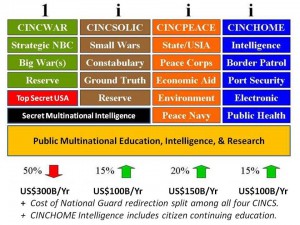
Sen Hagel, if confirmed as SECDEF, may start firing Service Secretaries. Keeping Acquisition and Intelligence will be a sure sign that nothing is actually going to change.
Sources: Carter, Others Expected To Stay
By Zachary Fryer-Biggs and Marcus Weisgerber
Washington Post, 21 January 2013
Although the transition between presidential terms is usually marked by large-scale personnel turnover at politically appointed government posts, sources said that this time, many of the most important leaders at the Pentagon are likely to stay, creating continuity in a time of fiscal uncertainty.
Among them, Deputy Defense Secretary Ashton Carter is expected to stay on for at least one year following confirmation of the top Defense Department job, according to Pentagon sources.
While it appears more and more likely that former Sen. Chuck Hagel will be confirmed to replace Defense Secretary Leon Panetta, Hagel will likely inherit much of his predecessor’s team. Besides Carter, Frank Kendall, undersecretary of defense for acquisition, technology and logistics, and Robert Hale, Defense Department comptroller, are likely to remain, sources said.
According to a Pentagon official, the president asked Carter to stay in his current DoD post, a decision, sources added, was made easier because of the good relationship he has with Hagel.
Carter had been rumored as a candidate for Cabinet-level positions, but that possibility appears to have passed for the moment. Michael Vickers, who was considered for the job of CIA director, is thought likely to remain at DoD as well.
None of the decisions has been finalized, as Hagel will be given the option to push for his own people, but sources don’t expect Hagel to rock the boat. Change is more likely to occur at the service head level, said Loren Thompson of the Lexington Institute think tank. But those decisions are likely to wait until a new secretary is settled, Thompson said. And while the staffs may remain similar, there will be a distinction in mandate and ideology between the current and likely defense chiefs.

Phi Beta Iota: We agree with Brother Marcus. Keeping Carter and testing Flournoy on special assignment is very smart. Vickers is an intellectual wallflower with no idea how to actually provide decision-support of anything; if he stays in place, Hagel will be giving up the one change agent catalyst he owns. Kendall could be managed — as a status quo pork processor, it might be clever to keep him as a comfort factor if the military-industrial complex is going to be sharply redirected, but on balance, he is a huge part of the existing problem and has so much baggage he might single-handlely define Hagle's tenure as bad theater. Shifting Kendall to oversee both the General Counsel and the Office of the Inspector General as a direct report to the Secretary for integrity, would be a clever way to leverage his considerable gifts while still putting someone into acquisition capable of delivering a 450-ship Navy, a fly-away Air Force, and an air-liftable Army. The other big decision Hagel will or will not make will be with respect to the theaters. The Service Secretaries are helpless in times of fiscal constraint–they really are figureheads. One solution would be to assign each service secretary to lead a force function: Army leads Big War, Navy-Marine Corps leads Small War, and Air Force leads Peace War, and give them OSD level authority to force simplification and integration among the services down to the spare parts level. All five of the Joint Chiefs need to retire and some form of open competition rooted in intelligence and integrity used to screen potential replacement, who should probably be from the ranks of senior Colonels and junior Brigadier Generals — this may be the best opportunity we will ever have to retire en mass an entire generation of peacetime flags that have been largely worthless at anything other than spending money and losing wars. Border integrity has never been provided on land, sea, or air, homeland intelligence is non-existent, and both health and cyber are an abject mess. This may be a bridge too far, but a thoughtful solution is still needed for homeland defense and border/cyber/health integrity, DHS being a complete and extraordinarily expensive failure.
See Also:



